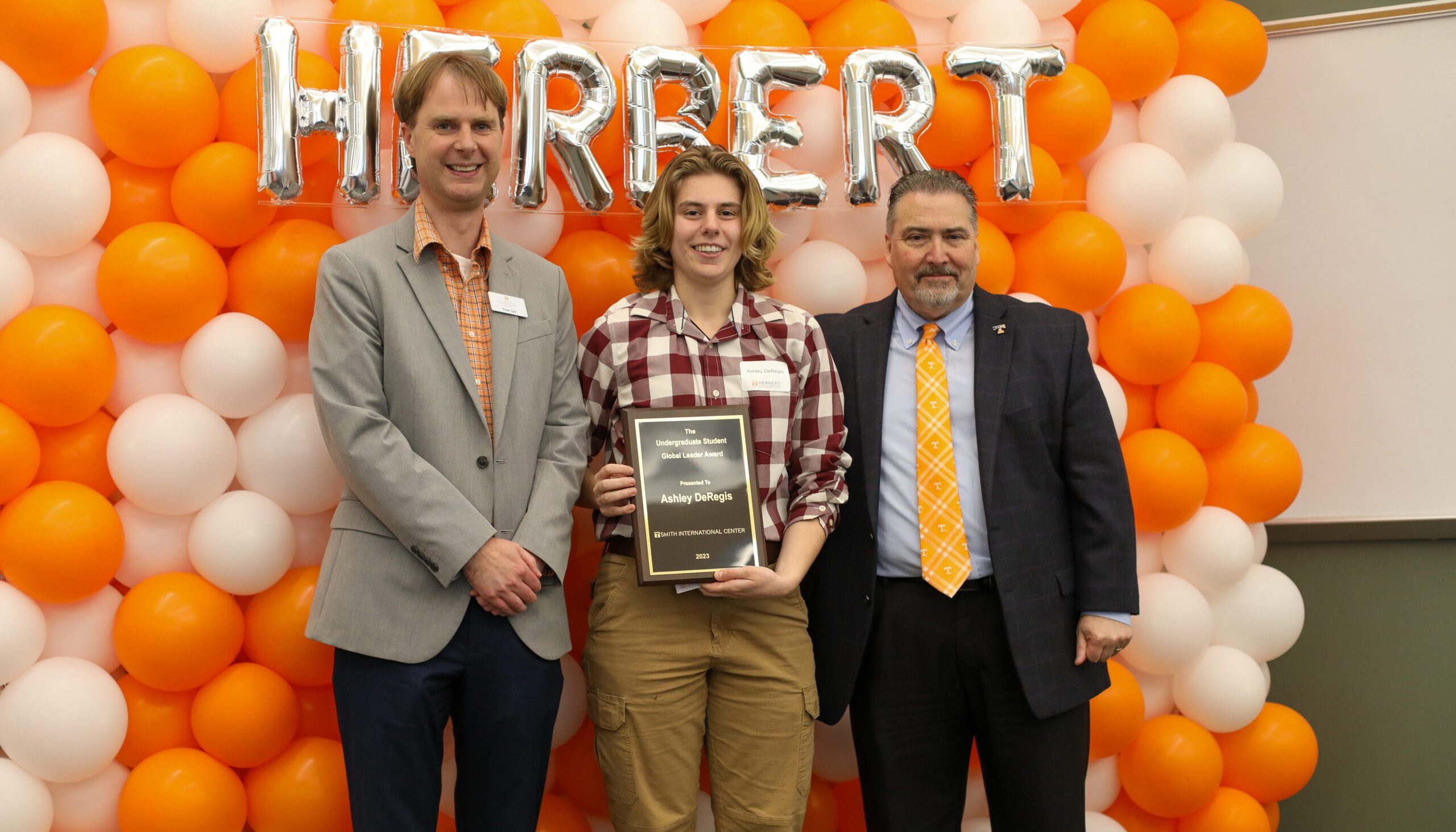Mission
The Herbert College of Agriculture educates and prepares students to lead personally satisfying lives as productive members of society with emphasis on careers in the agricultural, environmental, life, and social sciences.
Vision
Develop VOLunteers who raise the standard as global servant leaders in agriculture, natural resources, and construction sciences, and who:
- Make a difference by creating real life solutions
- Demonstrate state, regional, and global impact
- Live the land-grant mission
Values
INTEGRITY – To maintain integrity, we conduct ourselves with honesty, consistency, and morality.
PERSONAL DEVELOPMENT – We give our people the tools to succeed, and provide leadership opportunities with the realization that every first effort may not lead to complete success.
INNOVATION – We embrace change and creativity, challenge each other, as well as create and adopt new and novel methods and technologies.
UTIA’s Five-Year Strategic Plan
*The Herbert College of Agriculture is in the process of updating its five-year strategic plan, which will closely align with that of both UTIA and UT Knoxville.
History
Agriculture has been a part of the curriculum at the University of Tennessee, Knoxville, since 1871, and offered under different structures, including the Department of Agriculture, School of Agriculture, College of Agriculture, College of Agriculture and Home Economics, and in 1991, the College of Agricultural Sciences and Natural Resources. In June 2018, the college underwent its most recent name change to the Herbert College of Agriculture in recognition of the generosity of Jim and Judi Herbert.
Caula Beyl joined the college as dean in 2007. At the time, the college was under the leadership of Mary Albrecht, associate dean, who reported to the vice president of the University of Tennessee Institute of Agriculture, Joe DiPietro, who had assumed his position only one year before that. Beyl was the first dean of the new leadership team hired by DiPietro. When she was hired, she was given three primary tasks: 1) increase the enrollment to more than 1,000 undergraduate students, 2) raise the visibility of the college across campus, and 3) bring in new revenue to support programs and students. When the college underwent its external review in 2018, recommendations included developing entrepreneurial enterprises such as online programs and more general education courses, reviewing faculty teaching efforts and revising as appropriate, enhancing student retention and graduation rates, increasing recognition of the colleges’ alumni success, strengthening commitment to undergraduate research and graduate education, and increasing the number of students, staff, faculty and administration.
Beyl retired in December 2022, after which David White stepped in as interim dean. During his interim appointment for two years, the college experienced growth in enrollment, programming, and presence both statewide and nationally. White previously served as interim head of the college’s Department of Food Science in 2019 after serving as associate dean for UT AgResearch. In January 2025, White became the official dean of the Herbert College of Agriculture.

